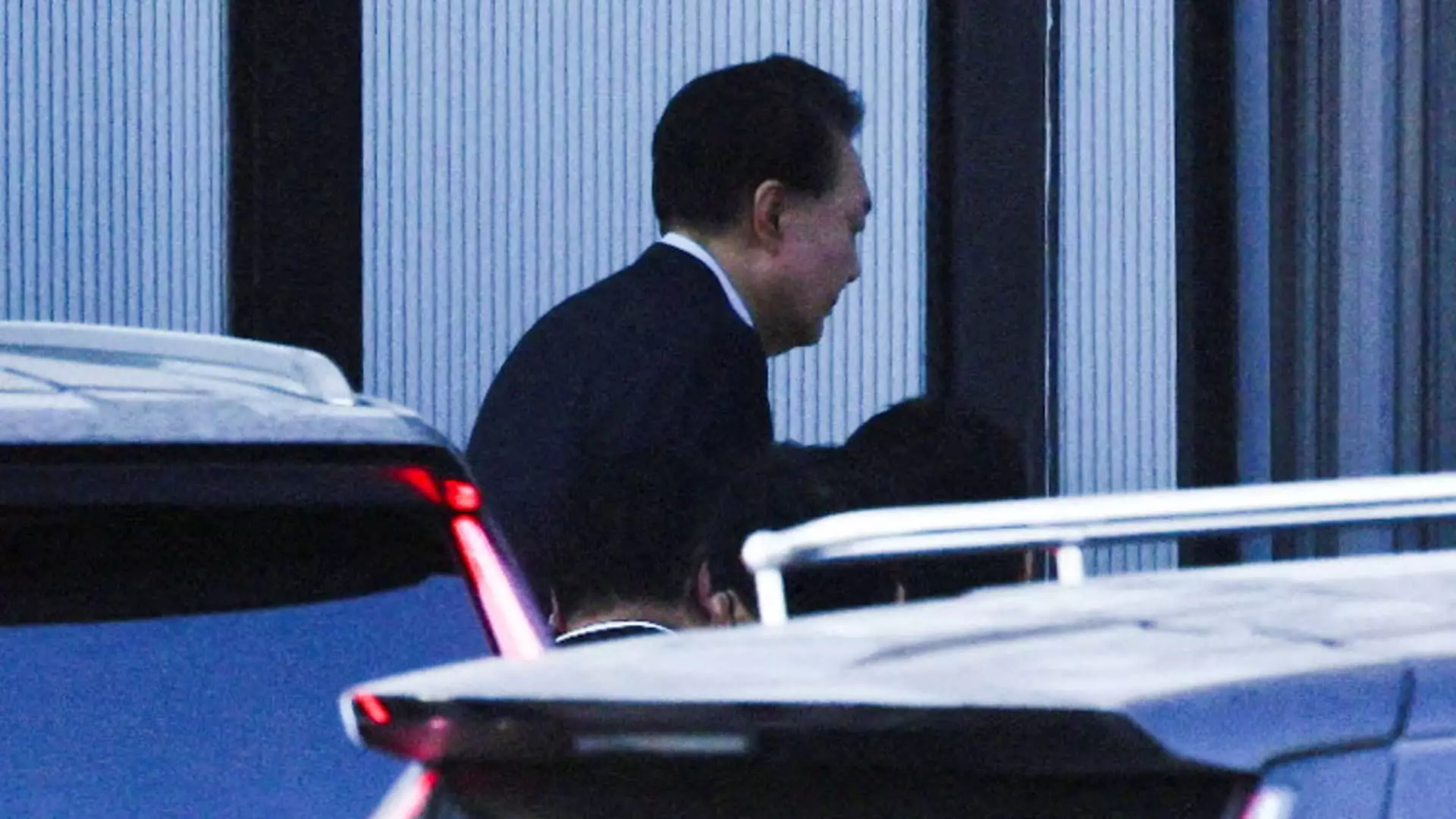In a remarkable turn of events that has captivated South Korea and the world, Yoon Suk Yeol, the country’s former president, has found himself embroiled in a significant legal battle following his impeachment and subsequent arrest. On a fateful Wednesday, Yoon became the first sitting South Korean president to face arrest, setting a precedent that raises profound questions about political accountability and legal immunity for high-ranking officials. The charges against him stem from an allegedly hasty declaration of martial law made on December 3, raising serious concerns about his adherence to constitutional norms.
The gravity of the situation was underscored during a recent court hearing that stretched for nearly five hours. Investigators sought to extend Yoon’s detention, arguing for an additional 20 days to gather evidence related to the accusations of insurrection—a charge from which an incumbent president typically would have immunity. However, the nature of Yoon’s alleged actions coupled with the claims of insurrection have ignited intense debate about the boundaries of presidential authority and the rule of law. Yoon, maintaining his innocence, has largely refrained from cooperating with investigators, opting instead to communicate through his lawyer. After the extensive hearing, his attorney detailed Yoon’s position, emphasizing the former president’s intent to clarify the legitimacy of his actions in office.
The public response to Yoon’s arrest has been polarized. A sizeable group of supporters gathered outside the Seoul Western District Court, expressing their unwavering belief in his innocence and calling for his release. The scene was charged, with chants of “release the president” echoing around the court as police struggled to maintain order. Such demonstrations raise essential questions about the intersection of public sentiment and legal proceedings in a high-profile political case. Amidst the chaos, some supporters were even arrested for attempting to breach police barricades, showcasing the fervent nature of the political climate surrounding this case.
The specific charge of insurrection against Yoon is particularly significant, as it is one of the few allegations that can pierce through the veil of immunity usually afforded to serving presidents in South Korea. This fact signifies not only the seriousness of the allegations but also the changing dynamics of political accountability in the country. Should Yoon be convicted, it may set a new standard for future leaders and potentially reshape the landscape of South Korean politics. The lingering uncertainty regarding the court’s decision, expected within a couple of days, has left many anxiously awaiting the repercussions of this unprecedented situation.
As Yoon returns to the Seoul Detention Centre to await the court’s ruling, the implications of his case extend beyond his personal fate. It epitomizes a broader struggle within South Korea regarding governance, accountability, and the power dynamics between government officials and the judiciary. This unfolding saga not only challenges the legacy of a presidency that ended in upheaval but also poses fundamental questions about the future of political leadership in South Korea.


Leave a Reply